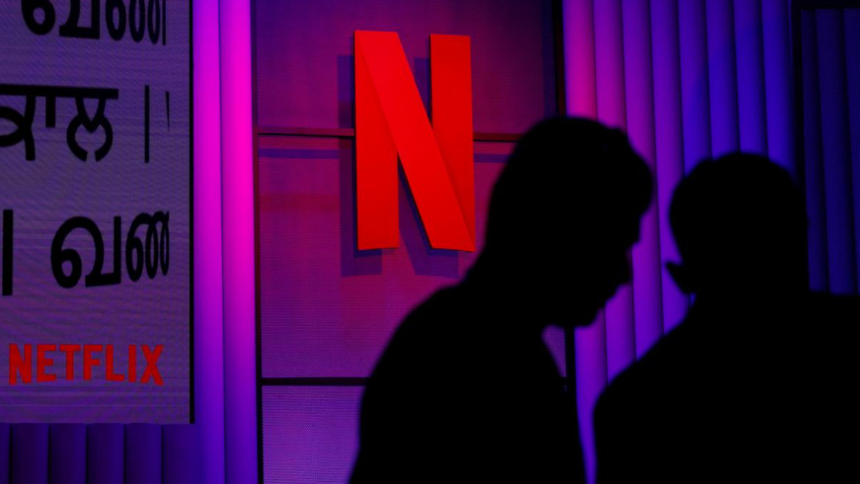Netflix, the global streaming giant, finds itself under scrutiny in India for alleged visa violations and racial discrimination following accusations made by Nandini Mehta, a former director of business and legal affairs for the company’s Indian operations. The ongoing investigation has raised concerns not only about Netflix’s internal corporate culture but also about broader issues of workplace discrimination and the ethical responsibilities of multinational corporations operating in diverse cultural contexts.
Mehta’s accusations, which include claims of wrongful termination, racial and gender discrimination, have captured international attention, particularly as she pursues a lawsuit in the United States against Netflix. While Netflix has denied these allegations, the controversy casts a spotlight on how large organizations navigate compliance with local laws, manage internal human resource challenges, and handle issues of diversity and inclusion in global markets. This blog delves into the details of the case, exploring the legal, cultural, and corporate implications for Netflix, its employees, and the broader tech and media industries.
The Nandini Mehta Case: Background and Claims
Nandini Mehta, who served as Netflix’s director of business and legal affairs for India, alleges that her tenure with the company ended in wrongful termination driven by discrimination based on race, gender, and nationality. Mehta claims that she was systematically marginalized and treated unfairly, ultimately leading to her dismissal. Her accusations, which have surfaced in the form of a lawsuit in the U.S., present a damaging narrative that challenges Netflix’s commitment to fostering an inclusive and diverse workplace, particularly in its overseas operations.
1. Accusations of Racial and Gender Discrimination
Mehta’s primary claim centers on the alleged discrimination she faced during her time at Netflix India. She has accused the company of treating her differently because of her race, gender, and nationality, stating that she was often excluded from important meetings and decision-making processes. According to Mehta, these exclusions were not only unjust but were also part of a broader pattern of systemic bias that affected other non-white and non-Western employees within Netflix’s Indian division.
This claim, if true, would suggest that Netflix failed to implement robust diversity and inclusion practices in its Indian offices, despite its public commitment to promoting a diverse and inclusive workplace globally. For a company like Netflix, which prides itself on its progressive stance on social issues and its ability to tell diverse stories from around the world, these accusations are particularly damaging.
2. Visa Violations and Legal Troubles
In addition to the allegations of discrimination, the case has also revealed concerns around Netflix’s adherence to Indian visa laws. According to reports, Netflix is being investigated by Indian authorities for potential visa violations, particularly in relation to how it manages the employment of foreign nationals in its Indian operations.
Visa violations are a serious matter for any company, but they are particularly significant for multinational corporations like Netflix that operate across multiple jurisdictions. In India, where visa laws are stringent and closely regulated, companies are required to ensure that foreign employees have the correct visa status and that all paperwork is in order. Any deviation from these regulations can result in heavy fines, legal action, and reputational damage.
While Netflix has denied any wrongdoing, the investigation is ongoing. If the company is found to have violated Indian visa laws, it could face severe consequences, including restrictions on its ability to employ foreign nationals in the future. Moreover, visa violations could exacerbate the already fragile situation for Netflix as it seeks to maintain its foothold in a highly competitive and growing market.
3. Netflix’s Denial and Response
Netflix has categorically denied all of Mehta’s allegations, both in terms of the discrimination charges and the visa violations. The company has stated that Mehta’s termination was not based on any discriminatory factors, but was instead related to performance-related issues. Netflix has also expressed confidence that it has complied with all relevant visa regulations and that the investigation will ultimately clear the company of any wrongdoing.
In a public statement, Netflix reiterated its commitment to diversity and inclusion, stating that it “takes any allegations of discrimination very seriously and conducts thorough internal investigations when concerns are raised.” The company has emphasized that it strives to create an equitable work environment for all its employees, regardless of their background or nationality.
However, the denial has done little to quell public concern, particularly given the severity of the accusations and the ongoing nature of the investigation. For Netflix, the stakes are high—not only in terms of the legal and financial consequences of a potential lawsuit but also in terms of its reputation as a progressive, forward-thinking brand.
The Broader Legal and Corporate Implications
The Nandini Mehta case raises important questions about how global companies like Netflix manage their operations in foreign countries, particularly when it comes to compliance with local laws and regulations, as well as fostering an inclusive corporate culture. These issues are not unique to Netflix, but rather reflect broader challenges faced by multinational corporations as they expand into new and diverse markets.
1. The Legal Landscape for Multinational Companies in India
India is an attractive market for multinational corporations, particularly those in the technology and media industries. With a population of over 1.4 billion people and a growing middle class, India offers significant opportunities for growth. However, operating in India also comes with its own set of challenges, particularly in terms of regulatory compliance.
Visa regulations are particularly stringent in India, and companies that fail to adhere to these laws can face significant penalties. Foreign companies are required to ensure that their employees are on the correct type of visa and that all immigration paperwork is in order. Failure to comply with these regulations can result in fines, restrictions on business operations, and even criminal charges for senior executives.
In the case of Netflix, the allegations of visa violations could have serious legal implications. If Indian authorities determine that the company has violated visa laws, Netflix could face fines and restrictions on its ability to employ foreign nationals in the future. This could be particularly damaging for Netflix, which relies on a diverse and international workforce to manage its global operations.
2. Workplace Discrimination and Corporate Accountability
The allegations of racial and gender discrimination in the Mehta case also highlight the challenges that multinational corporations face in promoting diversity and inclusion across their global operations. While many companies, including Netflix, have made significant strides in promoting diversity and inclusion in their headquarters and core markets, ensuring that these values are upheld in foreign subsidiaries can be more difficult.
Cultural differences, varying labor laws, and different expectations around diversity can create challenges for companies trying to implement a consistent global approach to diversity and inclusion. In some cases, this can lead to allegations of discrimination and unequal treatment, as in the case of Nandini Mehta.
For companies like Netflix, the Mehta case is a reminder of the importance of fostering an inclusive workplace culture that extends beyond their home markets. It is not enough for companies to promote diversity and inclusion in their headquarters or in the countries where they are most visible. Instead, they must ensure that these values are upheld across their entire global operations.
3. Reputational Risk and the Power of Public Perception
One of the most significant risks for Netflix in the wake of the Mehta case is reputational damage. As a company that has built its brand on progressive values and inclusive storytelling, accusations of racial and gender discrimination are particularly damaging. Even if Netflix is ultimately cleared of any legal wrongdoing, the mere fact that these allegations have been made could harm the company’s reputation.
In today’s digital age, public perception can make or break a company’s success. Consumers are increasingly demanding that the companies they support align with their values, and accusations of discrimination can lead to boycotts, public outcry, and loss of business. For Netflix, which competes in a crowded streaming market, maintaining a positive public image is essential to its continued success.
Moreover, the Mehta case could have broader implications for Netflix’s ability to attract and retain talent. If the company is perceived as fostering a discriminatory or hostile work environment, it could struggle to recruit top talent, particularly in markets like India, where diversity and inclusion are becoming increasingly important issues for employees.
The Cultural Context: India’s Evolving Workplace Norms
India, like many other countries, is experiencing a cultural shift when it comes to workplace diversity and inclusion. Historically, issues of race, gender, and caste have played significant roles in shaping the country’s labor market and corporate culture. However, as India’s economy continues to grow and more multinational corporations establish operations in the country, there is a growing demand for more inclusive and equitable workplaces.
For companies like Netflix, operating in India means navigating these complex cultural dynamics while also adhering to local laws and regulations. The Mehta case has brought these issues to the forefront, highlighting the need for companies to be aware of the cultural context in which they operate and to take proactive steps to ensure that their employees are treated fairly and equitably.
In recent years, there has been an increasing focus on workplace diversity and inclusion in India, driven in part by the growing influence of multinational corporations and the rise of the tech industry. Companies are being held accountable for how they treat their employees, and issues of discrimination are receiving more attention from the media, the public, and regulatory authorities.
For Netflix, this means that the company must be particularly vigilant in ensuring that its operations in India align with its global values of diversity, inclusion, and equity. This includes not only complying with local laws and regulations but also fostering a workplace culture that is free from discrimination and bias.
Conclusion: What’s Next for Netflix?
The ongoing investigation into Netflix’s alleged visa violations and the lawsuit brought forward by Nandini Mehta for racial and gender discrimination present a significant challenge for the streaming giant. As the case unfolds, it is clear that the outcome will have far-reaching implications not only for Netflix but for other multinational corporations operating in India and beyond.
The legal and reputational risks are high, and Netflix will need to navigate this situation carefully if it hopes to maintain its standing as a leader in the global entertainment industry. Beyond the immediate legal battles, the case serves as a reminder of the importance of corporate accountability, diversity, and inclusion in today’s globalized world. As companies like Netflix continue to expand into new markets, they must ensure that their operations reflect the values they promote on a global scale. ALSO READ:- SpaceX’s Ambitious Plan: Sending Five Uncrewed Starships to Mars in Two Years 2024





